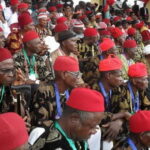The “Waka” trend in Nigeria often refers to different things depending on the context. Currently, it can be linked to Naziru Sarkin Waka, a popular Hausa musician known for his political and cultural songs. His music resonates deeply in the northern part of Nigeria and beyond, often addressing social issues, political landscapes, and cultural pride. His latest releases, including songs like Labarina, continue to gain attention on platforms like YouTube and music channels (YouTube).
Additionally, “Waka” may also refer to the general term used in Nigerian slang, which means “to walk” or “move around,” often used in daily conversations or as a playful term in social media discussions.
The term “Waka” in Nigeria has various meanings and trends tied to different contexts, ranging from music and pop culture to political slang and casual language. Here’s a more comprehensive exploration:
Waka Music
“Waka” as a genre of music has its roots in the Yoruba culture of Nigeria. It was popularized in the 1970s by Salawa Abeni, who earned the title “Queen of Waka Music.” This genre blends traditional African sounds with modern instruments and vocals, addressing themes of life, politics, and social issues. Abeni’s music broke cultural and gender barriers, bringing attention to female performers in Nigeria’s music industry.
Hausa Music: Sarkin Waka
In northern Nigeria, the term “Waka” also appears in connection to Hausa musicians like Naziru Sarkin Waka who is a prominent figure in the Hausa music industry. His songs, such as Labarina, discuss political matters, cultural pride, and the dynamics of society in Northern Nigeria. His style and the attention his music garners on platforms like YouTube have led to the trending status of “Waka” within music circles.
Naziru Sarkin Waka’s music often reflects contemporary issues and has a strong following among fans who resonate with his messages. His involvement in both music and the entertainment industry has kept “Waka” relevant in recent years.
Nigerian Slang and Pop Culture
“Waka” in Nigerian Pidgin means to “walk” or “move around,” often used in colloquial speech. This usage can be found in everyday conversation as well as in music and movies. For example, people might say, “I just waka come,” meaning “I just walked here” or “I just arrived.” The casual use of “waka” reflects its deep integration into Nigerian linguistic culture.
In social media trends, “waka” often features in jokes, memes, and viral challenges. These trends might include humorous interpretations of walking around aimlessly or making light of people’s travels. The flexibility of the word makes it a go-to phrase in Nigerian digital conversations.
Political Context
In Nigerian politics, “waka” has developed into a derogatory slang term. “Waka waka politician” refers to politicians who frequently switch allegiances or parties for personal gain. This phrase encapsulates the public’s perception of opportunism in politics, where certain leaders are seen as lacking integrity or loyalty. The term reflects the broader dissatisfaction among Nigerians with the fluid political alliances often seen in the country.
Social Media and Recent Trends
Recently, the hashtag #Waka has trended on social media platforms for various reasons. It could be tied to ongoing political discussions, humorous memes, or even references to the famous musicians using the term in their work. The adaptability of “waka” in different spheres—whether political, musical, or everyday life—ensures its continued presence in Nigerian digital and social spaces.


